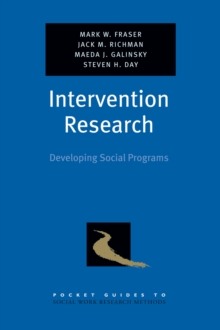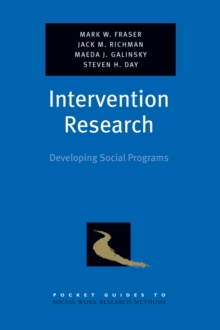
Quasi-Experimental Research Designs PDF
by Bruce A. Thyer
Part of the Pocket Guide to Social Work Research Methods series
- Information
Description
It is usually the case that ethical and pragmatic considerations preclude the use of randomly assigning social work clients to experimental and comparative treatment conditions.
In such instances, the practicality of employing a quasi-experimental method becomes an excellent alternative.
Quasi-experimental research designs allow researchers to compare groups, and the use of increasingly sophisticated programs provides greater statistical control for what has become the most widely employed research approach used to evaluate the outcomes of social work programs and policies.
This pocket guide describes the logic, design, and conduct of the range of such designs, encompassing pre-experiments, quasi-experiments making use of a control or comparison group, and time-series designs.
An introductory chapter describes the valuable role these types of studies have played in social work, from the 1930s to the present.
Subsequent chapters delve into each design type's major features, the kinds of questions it is capable of answering, and its strengths and limitations.
By linking the theoretical discussion of quasi-experimental designs with actual applications in social work literature, the usefulness and vitality of these research methods comes alive for readers. While this book can be utilized as a manual, it will also have great value for practitioners seeking a greater conceptual understanding of quasi-experimental studies in social work literature.
Human service professionals planning to undertake a program evaluation of their agency's services will find this book helpful in understanding the steps and actions needed to adopt a quasi-experimental strategy.
Information
-
Download Now
- Format:PDF
- Publisher:Oxford University Press
- Publication Date:02/02/2012
- Category:
- ISBN:9780199908745
Information
-
Download Now
- Format:PDF
- Publisher:Oxford University Press
- Publication Date:02/02/2012
- Category:
- ISBN:9780199908745



